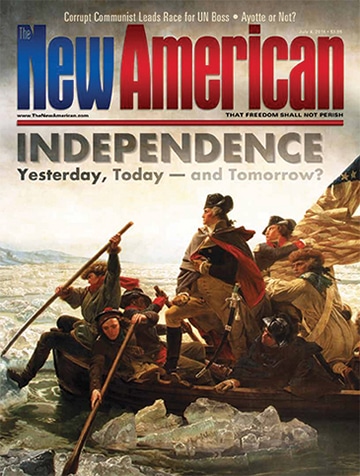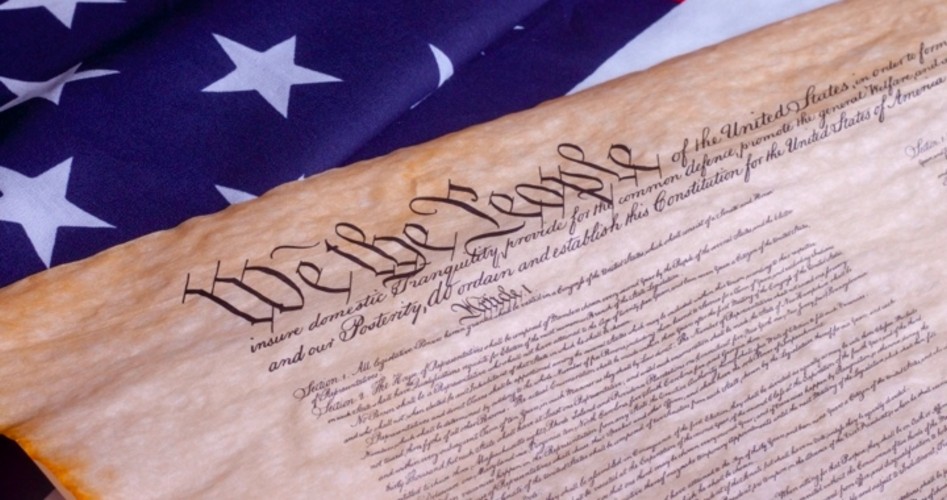What Type of Government Do We Have?
Although the United States of America has more than 320 million citizens — making her the world’s third most-populous country — few Americans know what type of government we actually have. While most of us understand that, in some sense, our government is understood to belong to the people — to be the servant and not the master — there is widespread confusion over how our system of government is supposed to work, and even what type of government we have. Many Americans believe that we live in a democracy. This claim is almost universally accepted in the news media, but is it true? If the United States of America is a “democracy,” then why, in the Pledge of Allegiance that used to be universally recited by schoolchildren every morning, is reference made to the “republic (not “democracy”) for which it (the flag) stands”? Why is the famous war hymn not entitled “The Battle Hymn of the Democracy”?
The American Founders took pains to distinguish republics from other forms of government, including democracy. In The Federalist, No. 10, James Madison clearly spells out the difference between democracies and republics. A “pure democracy” he defined as “a society consisting of a small number of citizens, who assemble and administer the government in person,” while a “republic” is “a government in which the scheme of representation takes place.” Based on the example of the ancient Greek city-states, Madison opined that democracies are inherently unstable and short-lived, “spectacles of turbulence and contention” that were actually injurious to liberty. Democracy in theory was more beloved of egalitarians (later named socialists) than of true partisans of liberty. Wrote Madison:
Theoretic politicians, who have patronized this species of government, have erroneously supposed that by reducing mankind to a perfect equality in their political rights, they would, at the same time, be perfectly equalized and assimilated in their possessions, their opinions, and their passions.
In fact, as Madison wrote those words, Revolutionary France was inaugurating its bloody experimentation with democracy, an exercise in misguided utopianism that led to the death of millions of Frenchmen and the rise of the ambitious dictator Napoleon Bonaparte, who promptly spread the despotic misery in France all across Europe.
Madison was not alone among the Founders in his contempt for democracy. Said Alexander Hamilton in 1788, “The ancient democracies in which the people themselves deliberated never possessed one good feature of government. Their very character was tyranny; their figure deformity.” And, he reminded his colleagues at the Constitutional Convention, “We are a Republican Government. Real liberty is never found in despotism or in the extremes of Democracy.”
Fisher Ames, who served in Congress during Washington’s presidency, characterized democracy as “a government by the passions of the multitude, or, no less correctly, according to the vices and ambitions of their leaders.”
Democracy, which literally means “rule of the people,” amounts to majoritarian rule, a system whereby the passions of the majority negate the rights of the minority — “two wolves and a sheep voting on what to eat for dinner,” as one wag put it. In practice, then, democracy is always unstable and actually conducive to tyranny, as the French found out by bitter experience.
By contrast, in republics, the instability occasioned by direct self-government is tempered by the “scheme of representation.” Delegation of government duties to elected officials, stated Madison, would “refine and enlarge the public views, by passing them through the medium of a chosen body of citizens, whose wisdom may best discern the true interest of their country, and whose patriotism and love of justice will be least likely to sacrifice it to temporary or partial considerations.” Put otherwise, republics, by ensuring that decisions are made by bodies of elected or appointed magistrates, are far less likely to act precipitously and unwisely, especially in times of crisis or public agitation. This is because duly-appointed government bodies have the ability to deliberate, which the general public does not.
But there’s more to it than that. The way to guarantee the stability of a republic is by framing laws that limit and define the powers of government, as with our Constitution. In this way, the rights of all citizens — not merely the majority — will be protected, and liberty secured. Thus, as Ames observed, a properly constituted republic “differs more widely from a democracy than a democracy from a despotism.”
To be sure, the term “republic” meant something different to the Romans, Venetians, and other Old World antecedents than to the Founding Fathers. Technically, European republics were “mixed” republics, consisting of an aristocratic element alongside a popular one. The Roman Senate, for example, was an aristocratic body similar to the British House of Lords, and its purpose was to ensure the perpetuity of the Roman privileged class established during the pre-republican monarchy.
In the American republic, however, there is no aristocratic component. Because of this, the American republic may be called the first “pure republic.”
Nevertheless, the notion that the United States is a “democracy” is very widespread. Is there any sense in which it is true? Certainly our electoral system is partially democratic. In other words, many of our political leaders at the national, state, and local level are chosen at the ballot box. But even with our electoral system, the democratic principle is far from universal. Federal judges and Cabinet chiefs are appointed and confirmed by presidents and Congress, not voted on by the people. The president himself — to the consternation of pro-democracy partisans — is appointed by an Electoral College, not elected by popular vote.
Thus, while our electoral system is partly democratic, and other features of direct democracy, such as town hall meetings and referenda, are found here and there, the United States was created to be, and remains (at least in intent), a republic — a government of laws, and not of men.



